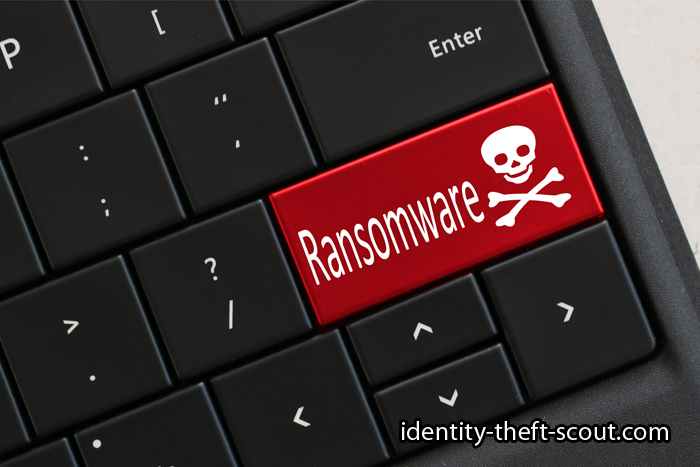The internet is a dangerous place, and ransomware might be one of its most diabolical threats. While worms and viruses wipe data or cause chaos, ransomware has a much sharper edge. Users hit by ransomware have their data (or their online secrets) hijacked for criminal returns.
Ransomware attacks are up – and according to statistics, way up. Cybersecurity website PurpleSec estimates that ransomware attacks might happen as often as once every 14 seconds.
If you access the internet at all, then you might be at risk of a ransomware attack. Authorities like the FBI have issued warnings surrounding the increase of ransomware scams and attacks on an international scale. Read more here: Link 1, Link 2
Is your system protected enough against the possibility of ransomware – or could hackers get their hands on your most precious information in less than a heartbeat?
Here’s how users better guard against the possibility of being hit by a ransomware attack.
Know Your Threats: What Is Ransomware?

Ransomware attacks have been around since the mid-nineties. A boom in working-from-home during COVID-19 has triggered an increase of cybersecurity threats for companies and home web users. First, here’s what users should know about ransomware from the ground up.
1. What Is Ransomware?
Ransomware is a specific type of malware that starts by infecting its host computer, server, or system. Once latched on, the program locks user data behind a coded paywall.
While programs vary in terms of complexity and eventual harm, the same premise is shared by many ransomware attacks.
The user is asked to pay, or threatened with the destruction (or release) of their information.
2. Who Gets Targeted By Ransomware?
Personal users are at an approximately equal risk of ransomware attacks. Data isn’t just important to companies and corporations, but precious and vital to people.
If you access the internet, you might become a victim.
3. How Common Is Ransomware?
Industry statistics guess at corporate ransomware attacks as exceptionally regular. But personal users might be targeted even more than this, as criminal networks expand their ransomware empires.
How many attacks go unreported, and aren’t included in this statistic?
News headlines show even more cause for concern as instances increase.
Hackers shut down the Colonial Pipeline in 2021 with a planned attack as reported by the Washington Post. In Ireland, criminals used a ransomware attack to cripple the national healthcare system as reported by BBC News. Read more here: Link 1, Link 2
If you have never thought of ransomware as a danger to your data before… Do you still imagine your online information is safe?
7 Ways To Secure Yourself From Ransomware Attacks

It doesn’t take years of computing expertise to secure your computer. Relying on basic awareness techniques and top security software already has your needs covered more than many corporations who have their servers badly secured.
Here are 7 ways to secure yourself from the possibility of a ransomware attack happening to you.
1. Update Cybersecurity Software Regularly
Updated antivirus software means you’ve already won the battle against most common viruses, worms, and other malware on the internet. Proper software keeps an updated list of threats – and every time you update, you’re a little more secure.
If you don’t use antivirus software at all (or yours is out of date), good luck going out into the jungle unarmed.
2 .Don’t Follow The Links.
Links can be dangerous. When users click a link, it opens up a portal – and you don’t always know where it leads. There are a million-and-one nefarious ways to hide malware behind shortened links (or links that appear to be from a certain source, but aren’t).
If you’ve received a link from a friend or contact, contact them personally and ask about it. Did they really send it?
The same goes for emails and text messages from companies. Always confirm that it’s from the intended sender.
3. Screen All File Downloads And Attachments
File downloads can be one of the biggest dangers for internet users. Links can hide plenty of malware, but files can hide even more (and depending where you get them, might sneak past your antivirus).
Always download apps from official sources to ensure you’re getting the authentic version of the right software. Screen downloads and attachments with antivirus software to ensure they’re clean from malware.
The same as with links, verify attachments to check their origin as being from the sender.
4. Guard Online Accounts And Information Better
Criminals in cyberspace are masters at manipulating information. The more they’re able to get access to, the more access they might gain.
Set public social media profiles to private, beware of the information you share in public, and select secure passwords for your accounts. Additional security measures include avoiding public wifi connections, and making sure that your own internet connection is set behind a password and VPN.
5. Avoid Engaging Scammers
Ransomware might originate from links or downloads, but can also come from scammers themselves. Identity theft and fraud can involve victims being exploited for information or cash.
In some cases, the exploitation leads up to a ransomware attack.
Have you received a strange message in your inbox, or feel like you’re getting more spam lately? Report spam for internet safety, and avoid engaging scammers.
6. Steer Clear Of Potentially Compromising Online Conversation.
Ransomware attacks don’t just hold personal data for currency. Sometimes, users are threatened with the exploitation of compromising information – including nude pictures.
Users should always take care with potentially compromising online conversation. Don’t reveal personal information, or send compromising texts or photographs that might be used against you.
If you are threatened with ransomware or exploitation, experts advise to contact law enforcement.
7. Upgrade To Advanced Security Measures For Your Internet Connection
More advanced security measures for your internet connection secures your system as a whole.
Use a VPN to avoid criminals locking into your internet connection, and consider it a service worth paying for. Backup important information on the cloud, and choose several secure (often paid-for) cloud providers.
Stepping up your security measures keeps you much safer than internet users who don’t.
More advanced security tips are available from security provider Norton in this article on how to combat the possibility of ransomware attacks.















